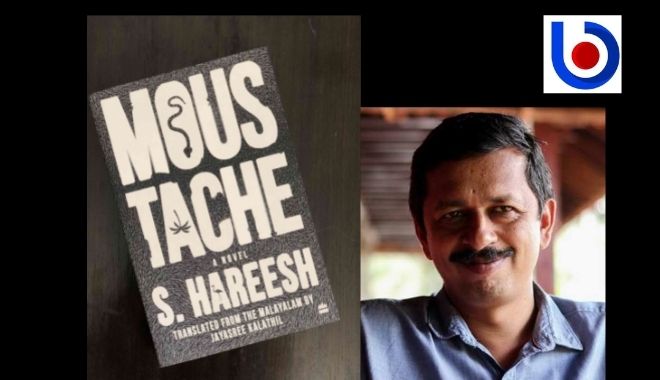In Post-2014 India Literary Works Are Received Differently: Writer S Hareesh

S Hareesh is best known for his controversial debut novel, Meesha. Its English translation entitled Moustache, done by Jaysree Kalathil, has fetched the author the JCB prize for literature, the Indian literary award with the highest prize money, in 2020. His short story ‘Maoist’ was adapted by Lijo Jose Pellissery for his film ‘Jallikattu’, which was India’s official entry at the 2020 Academy awards. He is an employee in the revenue department, government of Kerala. Excerpts from an exclusive interview:
Q: What was your experience being a scriptwriter?
SH: It was a good experience, and, of course, I felt glad. The writer of a work has his own standing when it comes to his creativity. After a work is born, or as we refer to the death of the author, I feel that the author has a very limited role or no role at all. The author has an equal and important place in the world of cinema just like the cameraman and the editor.
Q: Do you see a change in the political atmosphere?
SH: After 2014, the transformation of India from a soft core country to a hard core country has made a considerable difference. China and North Korea are hard core countries, Bhutan and Switzerland are soft core countries. India also had an identity of being a soft core country. No country would attack Bhutan and Switzerland easily, that was our case too, earlier, but now it has changed. Today around the world there is a movement of elected governments to the right and to autocratic regimes and this has brought about considerable changes in the reception of a literary work.
Q: How do you zero in on a subject?
SH: I do not keep or have any fixed plans for writing, but I have an urge to write. For a short story the subject needs to excite me for a month or two, but in the case of novels the subject should be something that can excite me for one or two years.
Q: The setting and characters of most of your work are drawn mostly from the same locale. Is there any particular reason for that?
SH: I have a special connect with these two places, Neendoor and Kaipuzha. They are for me full of characters. Every person you find here has a story and anyone who comes in contact with them will become a writer. This region shares a unique and distinct cultural and religious trait.
Q: There is a freshness and newness in your use of language. Is this a part of a new writing style that is unique to you?
SH: Language is a sign, and the problem is in the way we understand it. Language encapsulates the idea of the person who is involved in it. When one writes his ideas, his environment, and a lot of his personal traits are reflected in his writings, which are also true for the person who reads what a writer has written. So a work can always have new meanings.
My writing style resembles the speech pattern of the people who live around me. I feel that the polished language is now less engaging, I have no objections to anyone using that, but I believe that writing evolves from our daily life, just like characters and story, and I am more at ease in writing in the tongue of the people whom I know. Throughout the world there is now a narrative strategy that uses language, as directly as possible. Generally, literary ornaments are used in writings when one is not clear what he wants to say. One of the most commendable attempts at the use of language in Malayalam is Induchudan’s Keralathile Pakshi, though the book is about birds, it has a very lucid style of delivery. African and Latin American writers have evolved a unique style of writing, but of course that would not fit the Indian way of writing or storytelling.
Q: What do you feel about women’s writings?
SH: The major difference between the writing of men and women is the degree of their own experience. Unlike the work of male authors who generally elaborate their outwardly life and their experience, women writers take up an apparently minor and trivial incident, but they are very brilliant storytellers. Their world of experience is limited, for example, Han Kang’s Vegetarian and Marieke Lucas Rijeveld’s Discomfort of the Evening. These writings are different from the earlier ones in a way. The earlier writings of this sort talked about a spiritual inner world, but they talk more openly about the dark and scary inner world. This must be a reflection of the time in which they live. They spin the story around their little world with a lot of perfection and it keeps the readers moving.
Indian way of storytelling is a mix of folklore, regional histories and myths, and this demands a different way of storytelling. European novels stress upon factors like isolation and fragmentation. I feel that it is not at all an Indian experience. The root of this lies in their historical experiences through which they have lived. We do not have such collective experiences in India. Here we have family, an extended family — look at our weddings and funerals, for example—it happens in the midst of a crowd. One of the reasons that overshadow female writings, especially in India, is the question of family and marriage. If a woman writes openly, the first question that comes up is who will marry her, and if she is married, the reader becomes more interested in exploring her personal life rather than her stories.
(The interviewers are members of faculty, IIT-Indian School of Mines, Dhanbad)

Comments are closed.